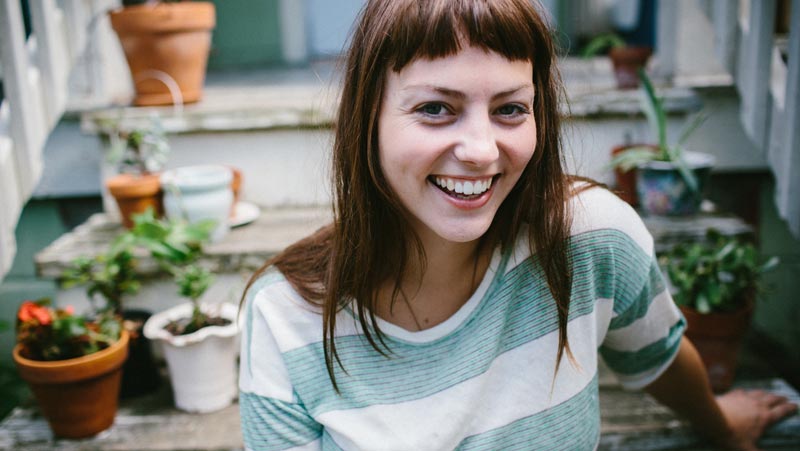Like so many kids growing up in the ’90s, Angel Olson spent lots of time singing into a Panasonic tape recorder—particularly in the bathroom, because of its natural reverb, a fact that drove her large family crazy.
“I still have some tapes from when I was sixteen or seventeen, and my voice sounds incredibly different,” Olson tells me by phone from Asheville, North Carolina, her home for the past year.
Though she’s been described as soft-spoken by music journalists, in conversation with KQED Olsen is self-assured and opinionated: about her recording vision, why the “women in music” category bums her out, and how to survive as an independent musician in 2014. She plays with her band at the Great American Music Hall on Dec. 1, and a sold-out solo show on Dec. 2 at The Chapel.
We start with Olson’s voice, because it is just so remarkable. Will Oldham, the idiosyncratic, workaholic folk musician who plucked the then-23-year-old Missouri native from the obscurity of Chicago warehouse gigs in 2010, once said about her voice: “It’s almost like I get hollowed out and then filled, but I don’t know what it’s with. It’s a mixture of apprehension and satisfaction at the same time.”
On her latest album, Burn Your Fire For No Witness, Olson—who left her adopted family in St. Louis and moved to Chicago when she was 18—moves deftly between caramel-infused whispers, Roy Orbison-like quavers, and willfully controlled wails. Obsessed with the Fairport Convention at the age of 16, Olsen says, she’d mimic the “earnest, high-pitched folk music” voices of the group’s singers Linda Thompson and Judy Dyble. At the same time, she’d been exposed to old-school country and rock like the Everly Brothers and Roger Miller through her parents. And then there were the ’90s R&B singers, like Lauryn Hill, Destiny’s Child and Mariah Carey, who inspired her to let loose in a different way on the album’s last track, “Windows.”


